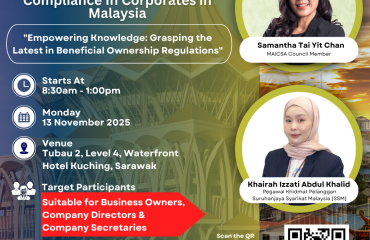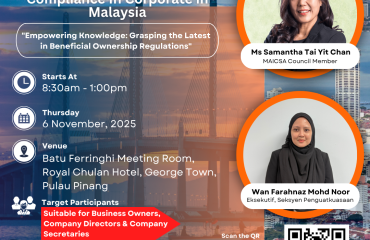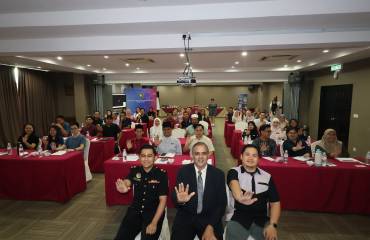30 November, Kuala Lumpur – Transparency International (TI) published 10 Anti-Corruption Principles for State-Owned Enterprises for Countering Corruption, a guide to encourage and help enterprises controlled or partially owned by the state to implement best-practice anti-corruption programmes based on the highest standards of integrity and transparency. The SOE principles were developed through a multi-stakeholder process where Transparency International sought advice and recommendations from SOEs themselves, its chapters, academics and governance experts from around the world. Based on these principle an SOE board and management, supported by all its employees, is expected to:
- Operate to the highest standard of ethics and integrity
- Ensure best practice governance and oversight of the anti-corruption programme
- Be accountable to stakeholders through transparency and public reporting
- Ensure human resources policies and procedures support the anti-corruption programme
- Design the anti-corruption programme based on thorough risk assessment
- Implement detailed policies and procedures to counter key corruption risks
- Manage relationships with third parties to ensure they perform to an anti-corruption standard equivalent to that of the SOE
- Use communication and training to embed the anti-corruption programme in the SOE
- Provide secure and accessible advice and whistleblowing channels
- Monitor, assess and continuously improve implementation of the anti-corruption programme
In the latest Auditor-General’s Report, there were actions required to be taken on the issue of governance in Government-Linked Companies (GLCs). On AG’s dashboard, it was indicated that having a board of directors that are helmed by non-professionals in the relevant industry/field is not advisable and further there is absent a code of ethics for the board similar to the Malaysia Code of Corporate Governance. Due to the SOEs’ board and senior management’s close relationship with the government and politicians, specific corruption-related vulnerabilities arise. This includes poor governance, poorly managed conflicts of interest, as well as a lack of accountability through transparency and public reporting.
In order for GLCs/SOEs to operate with integrity and accountability, TI-M is looking forward to these companies adopting and using the guidance set out in the above principles and to implement successful anti-corruption programmes that will ensure the transparency and accountability to their ultimate owner – which is the Rakyat.
Dato Akhbar Satar
President
-END-
Transparency International-Malaysia is an independent, non-governmental and non-partisan organisation committed to the fight against corruption. Website: www.transparency.org.my
Note to Editors: For clarification on any and all official statements from Transparency International – Malaysia (TI-M), kindly refer to its President, Dato’ Akhbar Satar (akhbar@transparency.org.my).







